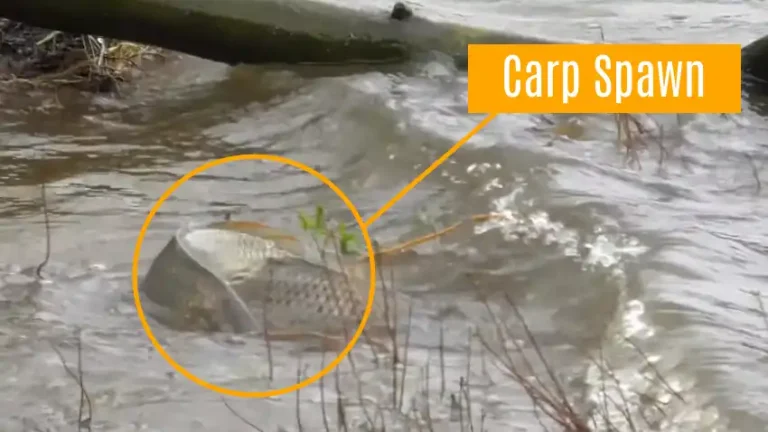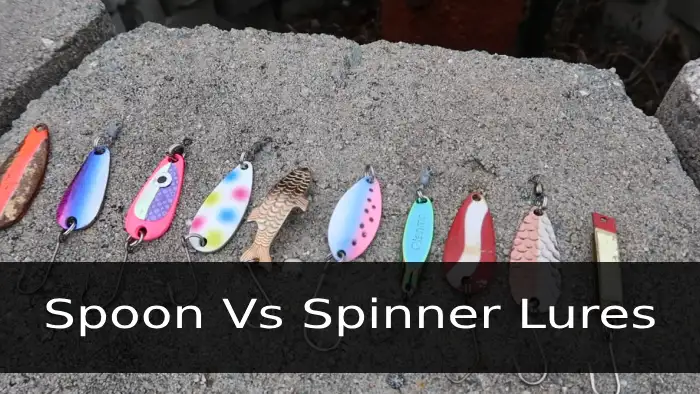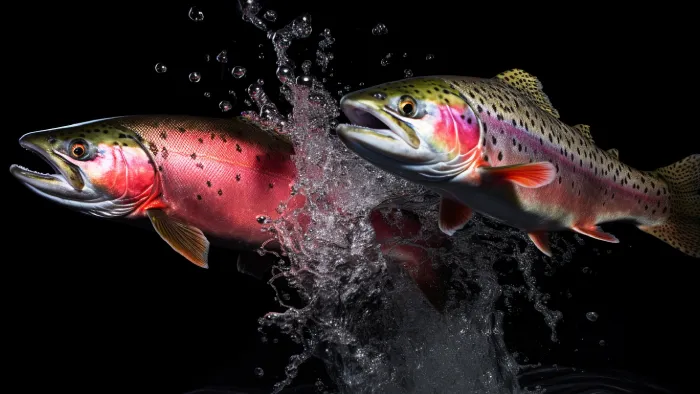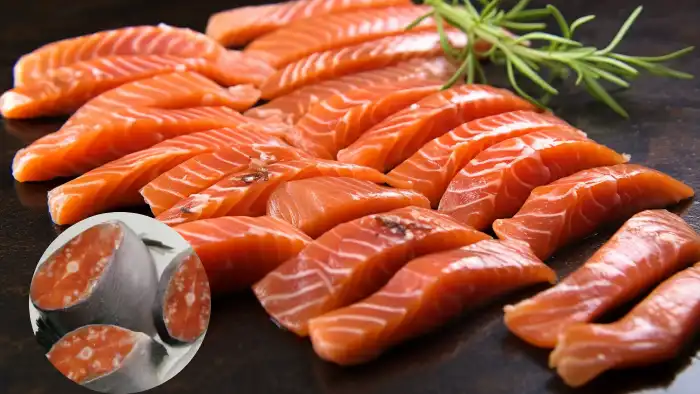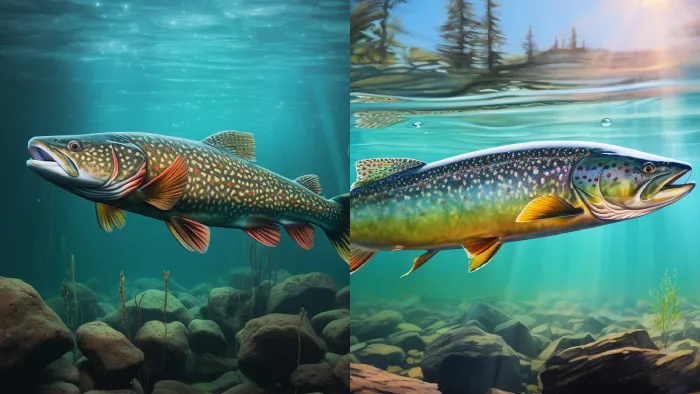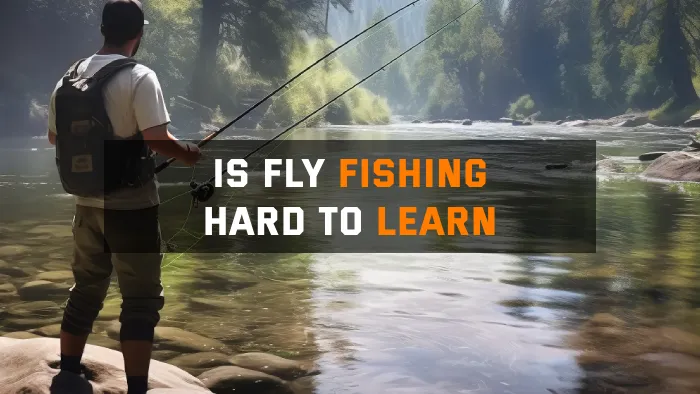Why Is Fishing Called Angling: 6 Reasons [Explained]
Fishing, often referred to as angling, is a timeless pursuit that has captured the imagination of people for centuries. While the term may sound enigmatic to some, it carries a rich history and a profound connection to the art and science of catching fish.
The name ‘angling’ stems from the historical linguistic evolution of the word, which originally meant ‘to fish with a hook.’ This reflects the focus on a hook-centric approach that has long been associated with this ancient activity.
Moreover, the evolution of fishing terminology over the years has contributed to the use of the term ‘angling’ to describe this distinct sporting pursuit.
Throughout this article, we’ll look into the reasons behind this terminology and explore the differences between fishing and angling. We’ll also provide some tips on how you can elevate your fishing skills to become a true angler.
Reasons on Why Is Fishing Called Angling

While the exact origin of the term is uncertain, there are a few prominent explanations as to why fishing is referred to as angling. Here are a few of the most popular theories.
- No 1. Historical linguistic evolution
- No 2. Focus on hook-centric approach
- No 3. Evolution of fishing terminology
- No 4. Historical literary references
- No 5. Distinct sporting pursuit
- No 6. Cultural and linguistic heritage
Let’s explore these theories in more detail:
No 1. Historical Linguistic Evolution
The term ‘angling’ has evolved, connecting the word ‘angle’ to fishing hooks and highlighting the deep-rooted association between the two. This linguistic evolution showcases the historical development of the word and its connection to using hooks for fishing.
It is believed that ‘angle’ originally referred to a hook, and as the word transitioned from Latin to Old English, ‘angler’ became the term to describe someone who used hooks to catch fish. The etymology of ‘angling’ solidifies the association between the term and the method of employing fishing hooks.
This linguistic progression not only provides insight into the historical origins of the word but also emphasizes the significance of hooks in the practice of fishing.
No 2. Focus On Hook-Centric Approach
In the angling world, hooks are the heart and soul of the fishing process.
They play a vital role in attracting fish, enticing them to bite, and securing the catch. The strategic use of hooks is what sets angling apart from other fishing methods. Anglers carefully select hooks based on factors like size, shape, and material, aiming to mimic the natural prey of their target fish.
The right hook can make all the difference in successfully hooking and landing a fish. It’s a delicate balance between bait presentation and hook placement, ensuring that the fish is enticed but also securely hooked.
No 3. Evolution of Fishing Terminology
Before the emergence of the term ‘angling,’ fishermen used a variety of words to describe the practice of using hooks and related equipment to catch fish. However, specific words were developed as language and society advanced to distinguish various fishing methods.
‘Angling’ eventually emerged as a term specifically referring to the practice involving hooks and related equipment. This linguistic shift allowed for more precise communication about different fishing techniques.
The term ‘angling’ became synonymous with the hook-centric approach, highlighting the importance of methodology and equipment in fishing.
No 4. Historical Literary References
In historical literary works, the term ‘angling’ became the preferred term for hook-based fishing. One of the earliest publications contributing to this solidification was ‘Treatise of Fishing with an Angle’ by Dame Juliana Berners in 1496.
This influential work focused on the practice of fishing with hooks and introduced the term ‘angling’ to describe this specific method.
The publication of this treatise marked a significant milestone in the evolution of fishing terminology. Subsequent literary works further reinforced the usage of ‘angling’ as the preferred term for hook-based fishing, establishing its distinct identity.
These historical literary references documented the technique and played a crucial role in shaping the language and discourse surrounding the art of fishing.
No 5. Distinct Sporting Pursuit
When pursuing this distinct sporting pursuit, it’s all about the thrill of the catch and the challenge of outsmarting fish. Angling enthusiasts are driven by the excitement that comes with reeling in a big fish, the rush of adrenaline as they battle against the fish’s strength and cunning.
It’s a test of skill and strategy, where every cast, every movement of the bait, is calculated to entice the fish into biting. Angling is not just a hobby; it’s a passion, a way of life for those who seek adventure and fulfillment in the great outdoors.
The term ‘angling’ captures the essence of this pursuit, emphasizing the recreational and sporting nature of fishing and highlighting the enjoyment and satisfaction that comes from honing one’s skills and outwitting the fish.
No 6. Cultural and Linguistic Heritage
Now that you understand fishing as a distinct sporting pursuit let’s dive into another fascinating aspect of why it is called angling: its cultural and linguistic heritage.
The term ‘angling’ carries a profound connection to the evolution of language and fishing practices throughout history. It serves as a reminder of the lineage of fishing techniques, the mastery of tools and methods, and the shared experiences of anglers across generations.
Engaging in angling makes you part of a rich legacy rooted in hook-based fishing practices. This cultural and linguistic heritage adds depth and significance to the term ‘angling,’ making it more than just a label. It represents a connection to the past and a continuation of a timeless tradition that has captivated people for centuries.
What Can Fishermen Do to Become Anglers?
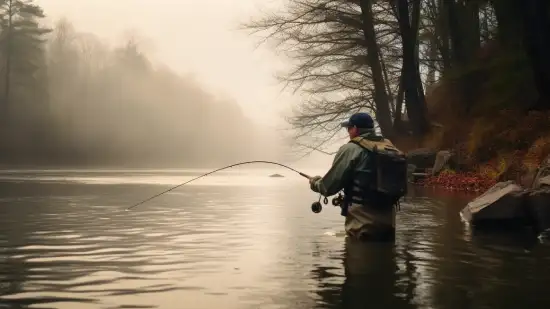
If you want to become an angler, there are a few key points you should focus on to enhance your fishing skills.
- Understanding angling principles
- Exploring targeted species
- Enhancing bait presentation
- Developing watercraft insight
- Patience and observational skills
Let’s dive into each one of these topics in more detail.
i) Understanding Angling Principles
To become a skilled angler, you must familiarize yourself with the principles of angling and understand how each component of fishing gear contributes to the technique. Angling is not just about throwing a line into the water and waiting for a fish to bite. It requires a deep understanding of the dynamics at play.
For example, the fishing rod comes in various actions, determining how it bends and flexes. This affects the casting distance and the control you have over the line.
The reel type also plays a crucial role in determining how smoothly you can retrieve your line. And never forget the line strength and hook size, which must be chosen carefully based on the type and size of fish you’re targeting.
ii) Exploring Targeted Species
You can learn about their behavior and habitat preferences by researching specific fish species. This knowledge is crucial for successful angling. Understanding the behavior of targeted species allows you to predict their movements and locate them more effectively.
For example, if you’re targeting bass, you’ll learn that they prefer submerged structures, such as fallen trees or rocky areas. Knowing this, you can choose the right bait or lure and cast it in the right spot to attract their attention.
Moreover, studying their feeding patterns will give you insights into the best time to fish for them. Some species are more active during dawn or dusk, while others prefer feeding during specific seasons.
iii) Enhancing Bait Presentation
Improve your bait presentation by experimenting with different retrieval speeds and patterns to see what triggers fish bites.
Retrieving your bait correctly can make a huge difference in enticing fish to bite. Start by varying your retrieval speed. Sometimes a slow and steady retrieve will be effective, while other times, a fast and erratic retrieve may work better.
Don’t be afraid to mix it up and try different patterns. For example, you can try a steady retrieve with occasional pauses or a series of quick jerks followed by a pause. These variations can mimic the movements of injured prey and attract the attention of nearby fish.
iv) Developing Watercraft Insight
Developing watercraft insight allows you to understand the behavior of fish in different aquatic environments and strategically position yourself to increase your chances of catching them.
By studying the water’s currents, temperature variations, and underwater structures, you can gain valuable knowledge about where fish are likely to be.
Pay attention to potential feeding areas, shelter zones, and transition points, as these are prime spots for fish to congregate.
As you become more adept at reading the water, you can anticipate fish behavior and adjust your angling techniques accordingly.
This insight is crucial for making informed decisions about the gear and techniques to employ.
v) Patience and Observational Skills
Transitioning to angling requires a shift in mindset towards patience and observation. Skilled anglers distinguish themselves from casual fishermen through their cultivated patience and attentiveness. Unlike other fishing methods focusing on quick results, angling is about waiting for the perfect moment.
It’s about developing the ability to read subtle signs that nature provides, like the ripples on the water’s surface or the movements of fish. These are the clues that will guide you toward success.
Cultivating your observational skills is key to detecting changes in fish behavior and adjusting your approach accordingly. It’s a delicate dance between you and the fish, where every movement and action matters.
So, embrace the art of patience and observation, and let it guide you toward becoming a skilled angler.
What is the difference between fishing and angling?
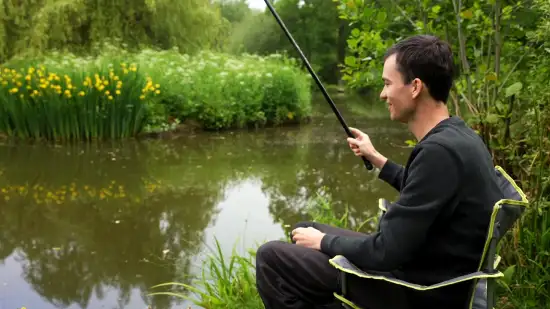
The main difference between fishing and angling lies in the specific equipment and methods used to catch fish.
Angling is a form of fishing that focuses on the sport and recreation of catching fish. It involves fishing rods, hooks, lines, and baits or lures to entice and catch fish. Anglers often seek out specific fish species and use various techniques to attract them.
On the other hand, fishing encompasses a broader range of methods and tools, including nets, traps, and spears. While fishing can also be enjoyed as a recreational activity, it is often used for commercial purposes as well.
What do you call a woman fisherman?
You can refer to a woman who catches fish as a fisherwoman. Just like a man who catches fish is called a fisherman, a woman who engages in the same activity can be called a fisherwoman.
Fisherwomen can be found in various settings, whether they are fishing for leisure or as a profession. They possess the skills and knowledge required to catch fish, using techniques such as angling.
Is being a fisherman a hard job?
Being a fisherman is undoubtedly challenging, requiring physical stamina and a deep understanding of the sea. It is not just a matter of setting the hook and waiting for the fish to bite. It’s about braving the unpredictable weather, enduring long hours of hard work, and constantly adapting to the ever-changing conditions of the ocean.
From navigating treacherous waters to hauling heavy nets filled with fish, every aspect of the job demands strength and skill. And do not forget the mental fortitude needed to handle the highs and lows of the fishing industry.
It may be a tough and demanding profession, but for those who are passionate about the sea and its bounties, being a fisherman is a way of life that brings its own unique rewards.
Mastering the Art of Angling
Fishing is called angling because it involves using a fishing rod, line, and hook to catch fish. Anglers are skilled fishermen who have mastered the art of using different techniques and bait to attract and reel fish.
Becoming an angler requires patience, knowledge, and practice. While fishing may be considered a hard job due to long hours, unpredictable weather, and physical labor, the rewards of a bountiful catch make it all worthwhile.
Like a skilled angler, navigating life’s challenges requires persistence and adaptability, casting our lines of effort and reeling in success.


